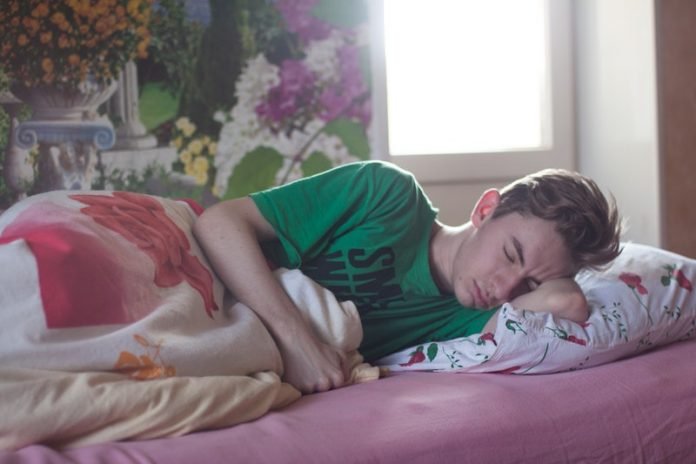
Insomnia is one of the most common sleep disorders and is most commonly treated with hypnotics.
However, hypnotics have a motor and cognitive side effects.
A recent study from the University of Tsukuba in Japan found that suvorexant, a recently approved and more targeted treatment, has fewer physical side effects.
The study is published in PNAS. The lead author is Masashi Yanagisawa.
The most common hypnotic agents for the treatment of insomnia are γ-aminobutyric acid (GABA) agonists, which bind to GABAA receptors to enhance the action of the inhibitory neurotransmitter, GABA.
GABAA receptors are widespread, which means that GABA agonists inhibit neurons throughout the brain and spinal cord, including those that are not involved in sleep.
One concern about the use of GABA agonists is their side effects—they might impair the normal ability to respond to unexpected stimuli during sleep in urgent situations.
This is not the case for suvorexant, which was approved as a treatment for insomnia in the U.S. and Japan in 2014.
According to the team, suvorexant has good efficacy and fewer side effects.
This is because the drug specifically acts on brain receptors involved in wakefulness, rather than the whole brain.
Suvorexant inhibits orexin receptors of the wake-promoting system, thus inhibiting wakefulness. This makes it a more targeted treatment than GABA agonists.
To study whether this would result in less severe side effects, the researchers examined 30 healthy men in a sleep lab.
Participants took either suvorexant, brotizolam (a GABA agonist), or a placebo before falling asleep and were then woken up 90 minutes later. Their cognitive and physical functioning was then tested.
The team found suvorexant had fewer impairments in body balance upon awakening than brotizolam.
This could be associated with the cerebellum, a part of the brain that coordinates balance.
Namely, the cerebellum contains GABAA receptors but not orexin receptors. In this case, brotizolam may have affected cerebellar functioning, while suvorexant did not.
This is the first study to investigate the potential side effects of suvorexant and to compare these with those of brotizolam.
Also, suvorexant was just as effective as brotizolam in the treatment of insomnia, with comparable effects on sleep duration and efficiency.
Copyright © 2020 Knowridge Science Report. All rights reserved.



